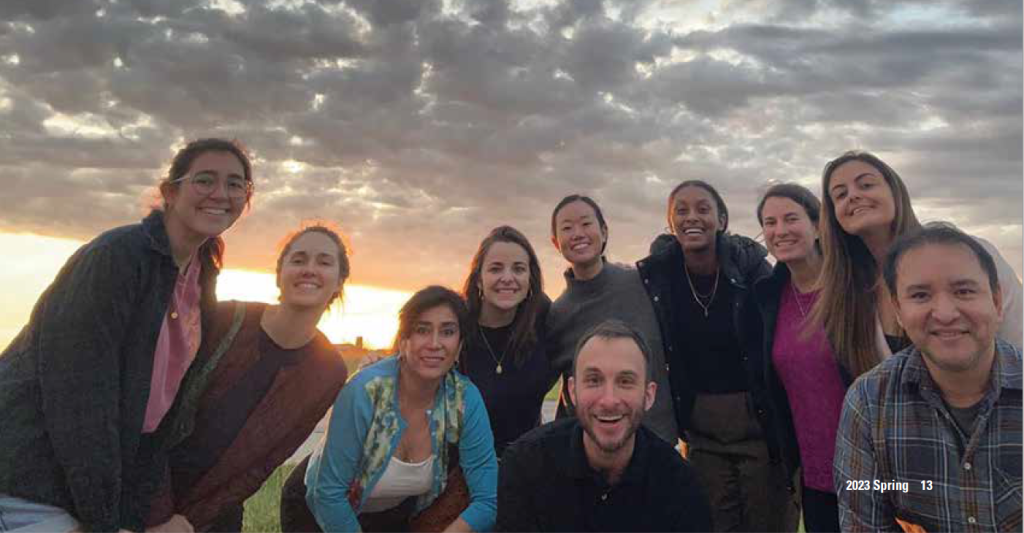This year's volunteers were Kendra Blandon, María Calderón, Sonia Geba, Gianna Giordano, Anna Gyori, Lauren Hodges, Margaret Hodson, Genevieve McCarthy, Emily Mitrione, Karl Mueller, Chantal Reyes, and Madeline Sachs. The project was organized by student leaders Lauren Hodges and Sonia Geba and faculty advisor Professor Andrew Schoenholtz.
Detained Families Seeking Asylum
In response to the Trump administration’s separation of migrant families near the U.S.-Mexico border in 2018, the Human Rights Institute organized volunteer service trips to assist asylum-seeking families. When these families fleeing serious violence arrive in the United States and express a fear of return to their home countries, they are required under U.S. law to have an opportunity to seek asylum. The Department of Homeland Security has detained such asylum seekers in jails upon their arrival. Being incarcerated makes the asylum process particularly difficult; the skills of lawyers and law students are needed to provide assistance.
The first volunteer trip involved twelve law students, including first years, as well as one fellow and one faculty member over a Winter Break week in 2018-19 at the largest immigrant family detention center in the country: the South Texas Family Residential Center (STFRC) in Dilley, Texas (approximately 80 minutes southwest of San Antonio). Since then, Georgetown Law students have regularly volunteered over Spring and Winter breaks to assist these detained asylum seekers. Generous gifts from alumni April and John Delaney as well as Sam Lambroza, and a gift from the John and Kathleen Schreiber Foundation have funded this service project.
In January 2023, a team of 12 Georgetown Law students traveled to Dilley, Texas to provide critical legal support to detained, low-income asylum seekers. Under the supervision of attorneys from Proyecto Dilley, students prepared detained women for their Credible Fear Interviews (CFIs), the first step in the daunting process of seeking asylum in the U.S. Students also conducted group legal orientations, shared information about the immigration court process with women awaiting release and worked with women who received negative credible fear findings to prepare for immigration judge review. The students, all of whom are proficient or fluent in Spanish, substantially increased Proyecto Dilley’s capacity to provide individual consultations and interview preparation sessions. In addition, students had the opportunity to explore asylum law and direct client services, many for the first time. In total, students worked with 90 detained women, and a majority of the women students prepared for their CFIs received positive determinations and will continue to pursue asylum cases in the U.S.

